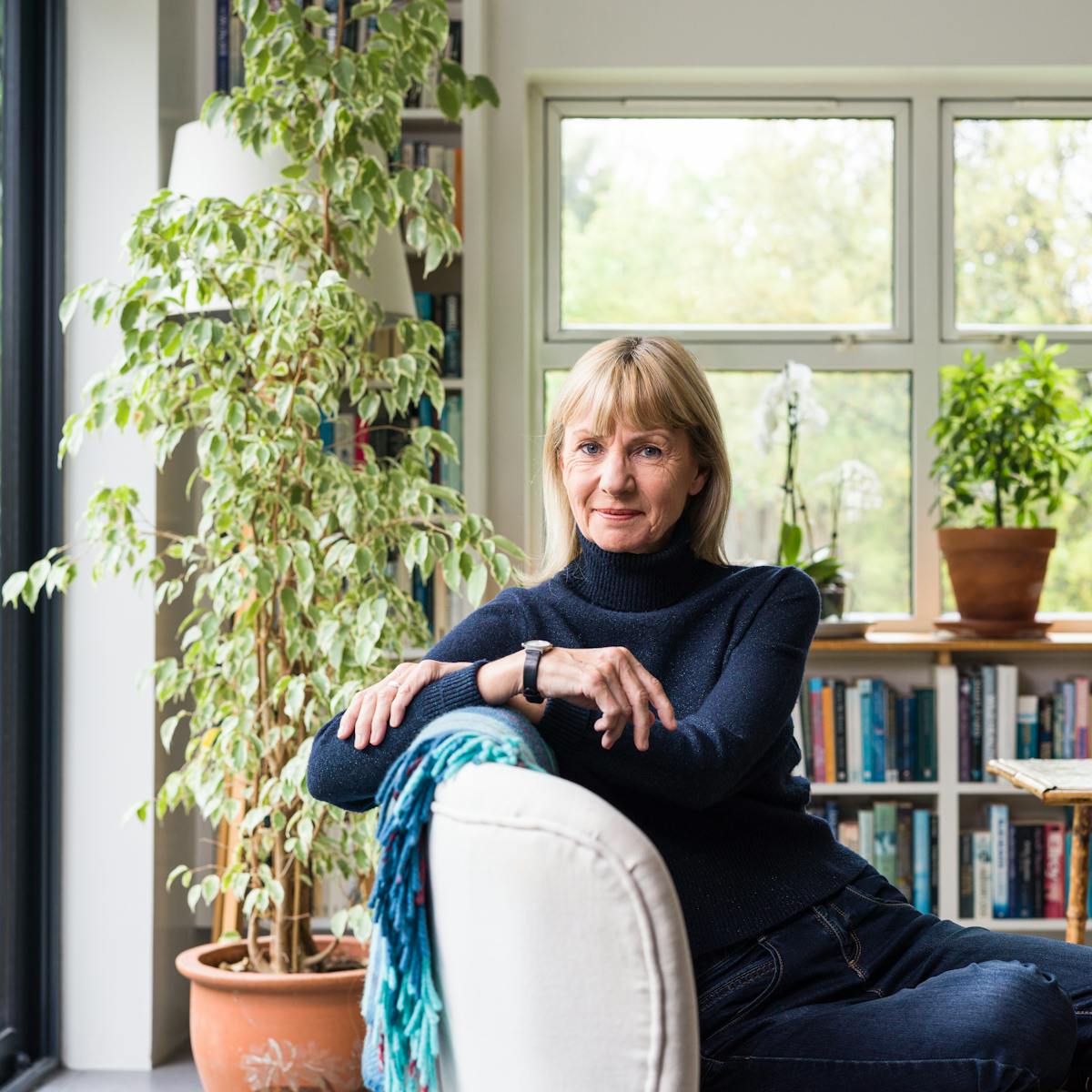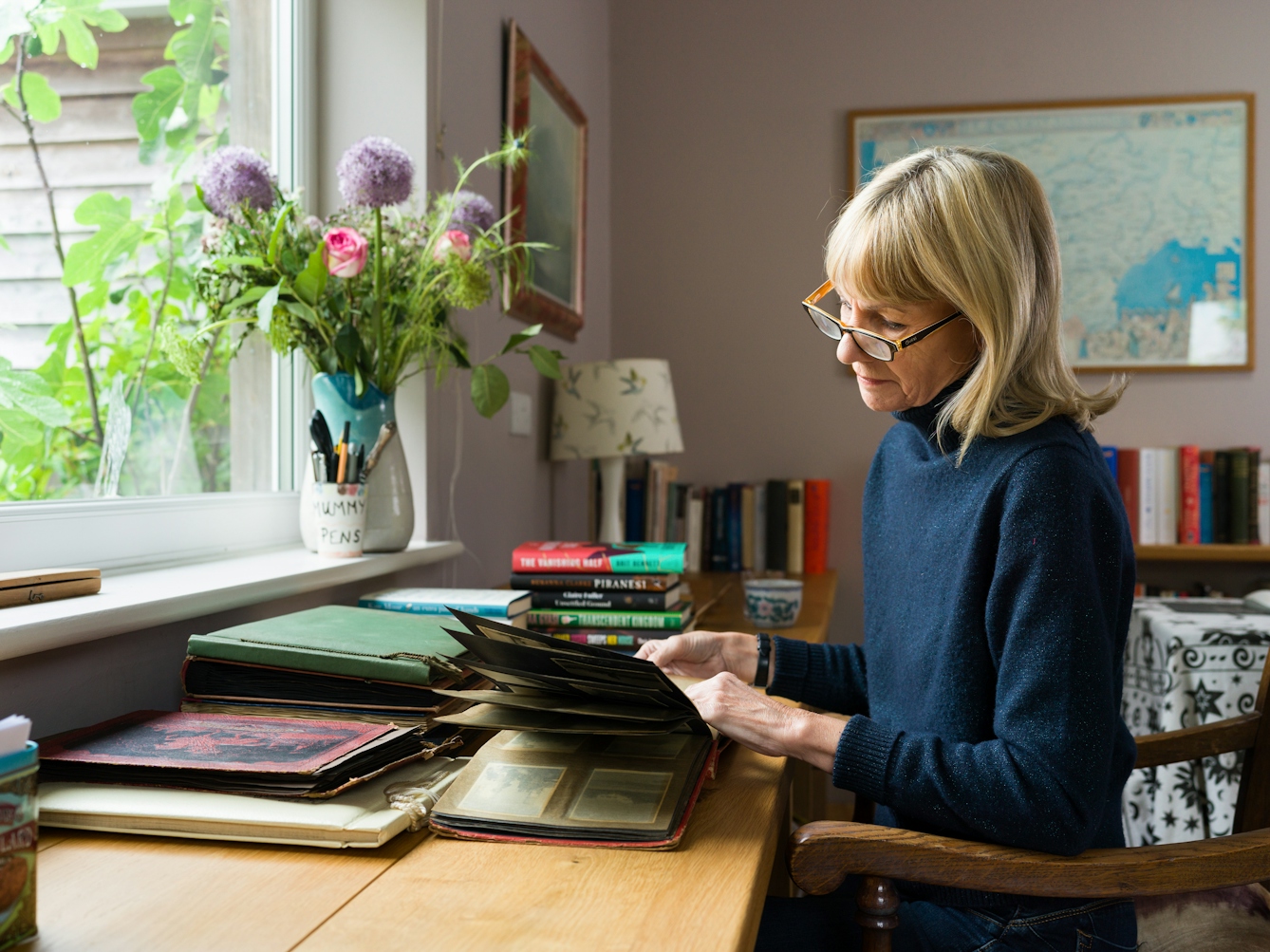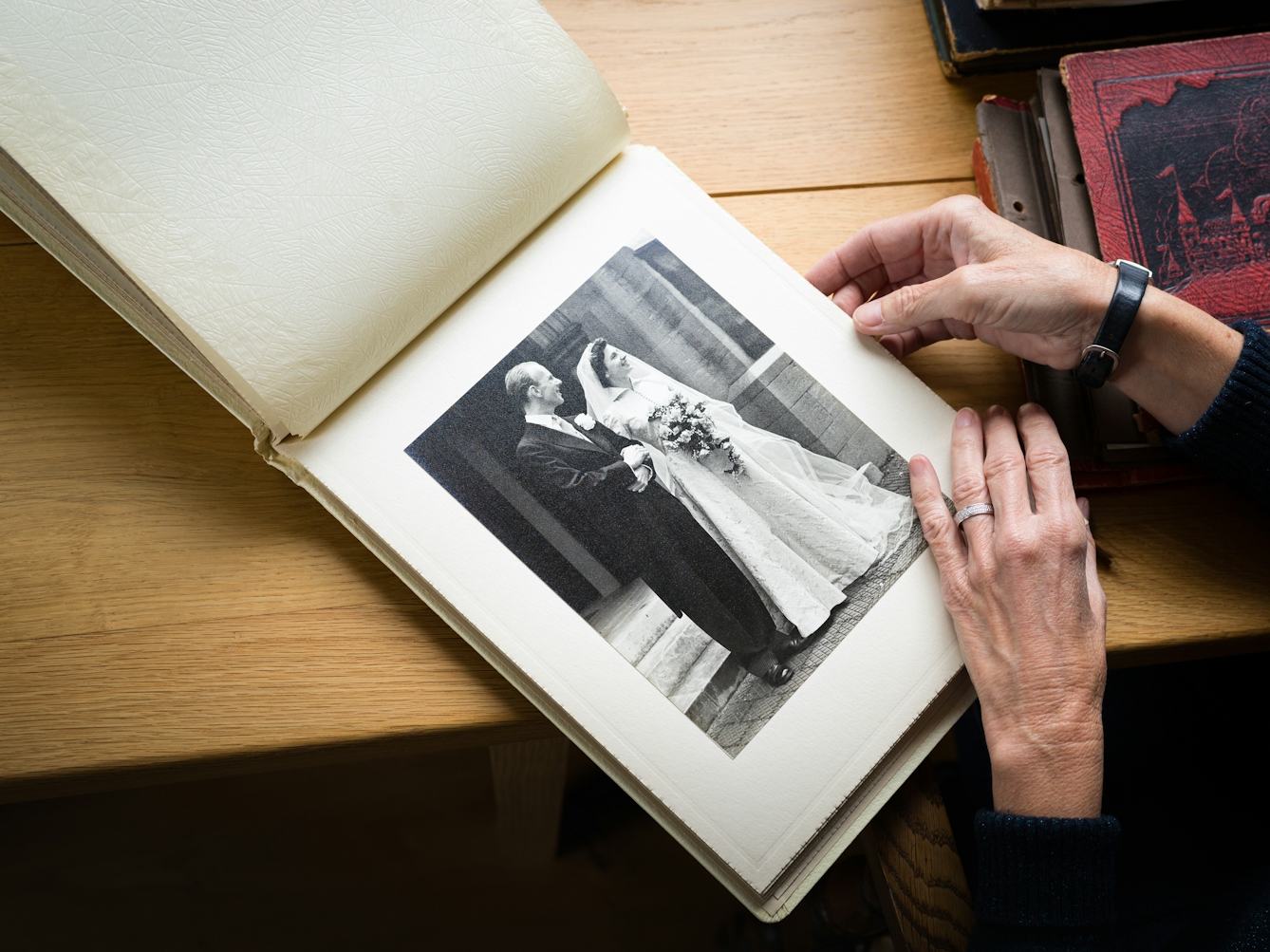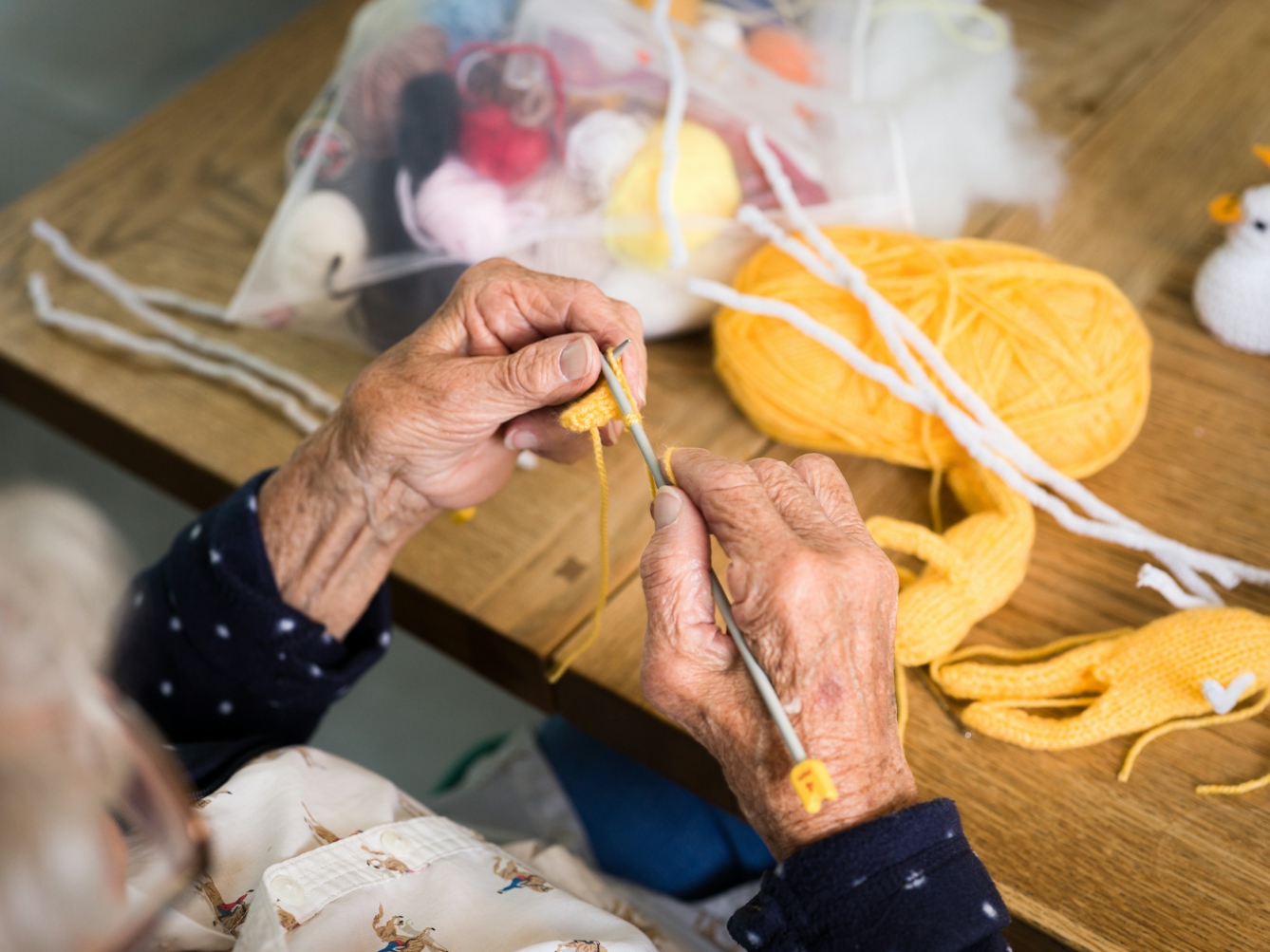In ‘An Extra Pair of Hands’, bestselling author Kate Mosse reflects on more than a decade of multi-generational living and caring: first, supporting her mother in caring for her father, then watching out for her mother in her widowhood, now as a full-time carer for her mother-in-law. In this extract she explores the sacrifice and reward of supporting someone as they age.
The give and take of caring
Words by Kate Mossephotography by Steven Pocockaverage reading time 6 minutes
- Book extract

The NHS gives the official definition of a carer as “anyone, including children and adults, who looks after a family member, partner or friend who needs help because of their illness, frailty, disability, a mental health problem or an addiction and cannot cope without their support. The care they give is unpaid.”
All the same, it’s a tricky word. It’s a noun freighted with meaning and requiring qualification. It brings with it a hint of transaction, of an inequality, which is all the more uncomfortable if you’re caring for someone you love.
By using it, however accurate it might be in terms of the day-to-day realities, there’s a risk that it redefines a partnership, a balanced give-and-take relationship, and turns it into an obligation: carer and patient, carer and client. One is active, the other passive, whereas every carer knows there’s nearly always some kind of reciprocity, even in the darkest hours.
You are still you, and they are still they.

Kate at home with her family’s photo albums.
Learning to live more slowly
In her 2020 book ‘Labours of Love’, a five-year investigation into the state of unpaid and paid care in the UK, Madeleine Bunting shares several derivations of that loaded little word. First, from the Old English word caru, meaning anxiety, grief, sorrow; then from the Old German word chara, which translates as lament or a “burden of the mind”. But also, from the Latin, cura.
I prefer cura. It is less pessimistic in its definition of the give and take. It combines a sense of sadness, of burden, with the idea of attentiveness to another’s welfare. Though its provenance is different, the modern Welsh word caru means “to love”.
This paradox is at the heart of what it means to care – there are positives and negatives. Each one of us who finds ourselves in this position will have different emotions at different times, and depending on our personal circumstances, our feelings for the person for whom we are asked to care, their needs and long-term situation, our own sense of what we are capable of giving and what we might have to sacrifice.

Photograph from Kate’s parents’ wedding day.
Practically, it’s not unlike being a parent. Every new mother knows that you can’t just have a shower when you fancy, but have to fit it around when your newborn baby is sleeping. You cannot act spontaneously. Every decision requires planning, even for those with a partner or family members at hand.
But there’s a crucial difference. All being well, the pattern of parenting is about your child growing stronger, more confident, more independent, learning to do things on their own and without your arms always there to catch them if things go wrong. When caring for someone with a life-limiting illness or approaching the end of their life, it is, de facto, a journey in the opposite direction. When decline is inevitable – and it will come to us all – stability is the best one can hope for.
It is how we manage this shift in emphasis that matters. Learning to live more slowly, to not be governed by the clock, to take pride and pleasure in ordinary things. It’s hard. Adapting or blending households, as we did, taking urgent calls in the middle of a meeting, changing arrangements to be available for a hospital appointment.

Kate's mother-in-law, Granny Rosie, knitting toys for Chestnut Tree Children’s Hospice.
The shifting sands of caring
Taking responsibility for another’s needs may be willingly done and a privilege (it was, and is, for me), but there is a poignancy in the reality that someone who is visibly ageing and already fragile will only ever become less mobile, less able to manage. It’s a tough gig, often full of despair and sadness. The 19th-century author Chateaubriand wrote: la vieillesse est un naufrage – old age is a shipwreck…
Many carers talk about feeling guilty – that terrible disappointment on a beloved father’s face when the visit is over too soon, or the falsely bright goodbye from a capable mother who is elderly herself, lonely as a sole carer, but refusing to give in. That wartime generation were brought up to cope, regardless of the personal consequences, rather than to ask for help.
For many caring remotely, the constant questioning of whether or not you are doing the right thing, or doing it well enough, can be overwhelming, particularly for families where the pressures are already extreme on childcare or finances or their own ill health. However much you do, it never feels enough.

A collection of walking sticks that belonged to Kate’s father.
The constant questioning of whether or not you are doing the right thing, or doing it well enough, can be overwhelming.
But though often remorseless and exhausting, it’s important also to celebrate the moments of caring that are rewarding and fulfilling, that are fun, however few and far between they might be. It’s important to look for hope. Moments of love and engagement. Because caring is all of these things. Shifting sands.
I’m remembering a visit to one of our favourite local pubs with my parents, a typical flint-faced Sussex cottage nestled in the green folds of Charlton Down. It was April 2010 perhaps, a year before my father died. One of his favourite authors, Rudyard Kipling, wrote: “Smells are surer than sounds or sights/To make the heart-strings crack.” Certainly, I haven’t forgotten the scent of polished wood, the aroma of herbs and meat roasting in the kitchen, the apple tint of local cider.

Glass tumblers that belonged to Kate’s father.
I can see in my mind’s eye, too, how my father, without any hint of self-pity, ordered a glass of red wine but asked for it to be served in two tumblers. Holding out his unstable hand to show how the tremors of Parkinson’s made a full glass an accident waiting to happen.
“Do you see?” he said kindly, and they did.
Remembering, too, how my mother took these kinds of moments in her stride when it must have been painful to watch. She never spoke for him, never took over unless he wanted her help, never let the thing he could no longer do become more important than the things he could.
‘An Extra Pair of Hands’ is out now.
About the contributors
Kate Mosse
Kate Mosse is a bestselling novelist, playwright and non-fiction author with sales of more than eight million copies in 38 languages. Renowned for bringing under-heard histories to life, she is a champion of women’s creativity. She is Founder Director of the Women’s Prize for Fiction, sits on the Executive Committee of Women of the World and is a Visiting Professor of Contemporary Fiction and Creative Writing at the University of Chichester. Her novel ‘The City of Tears’ was published in January 2021.
Steven Pocock
Steven is a photographer at Wellcome. His photography takes inspiration from the museum’s rich and varied collections. He enjoys collaborating on creative projects and taking them to imaginative places.

